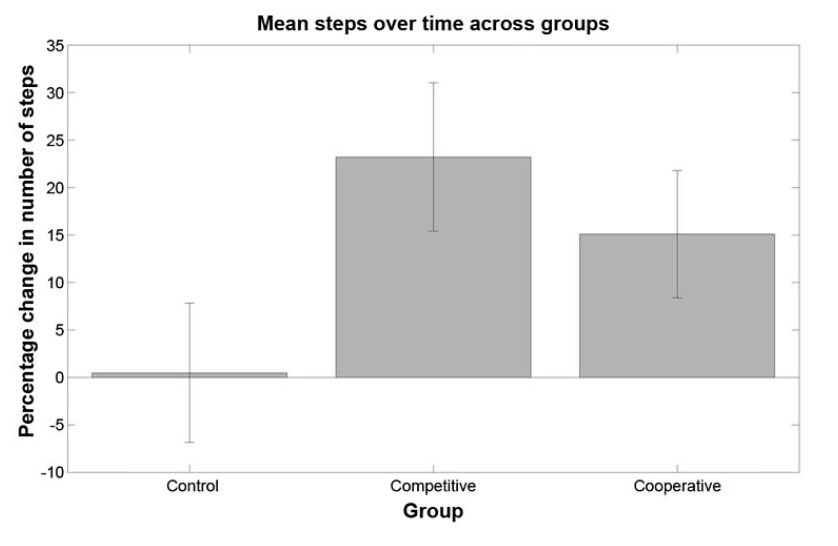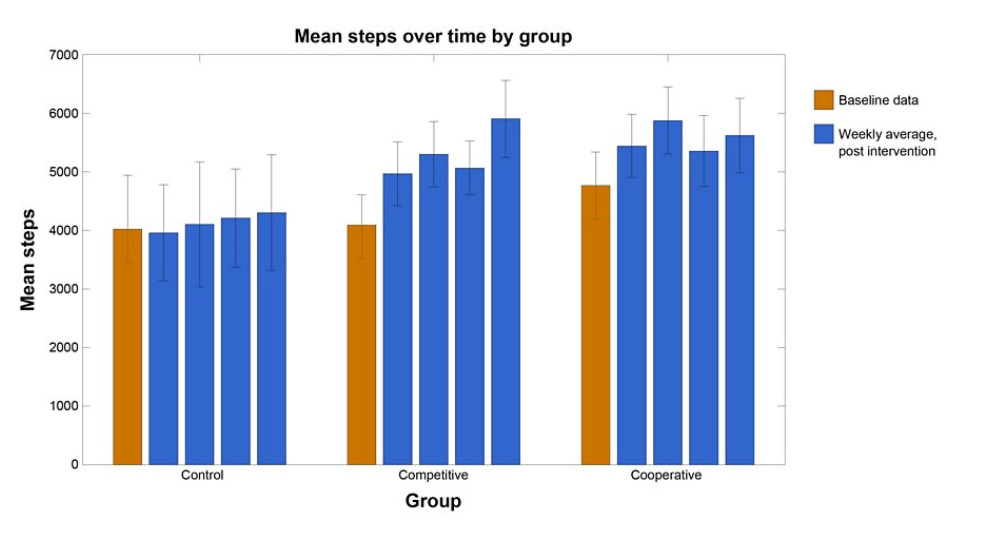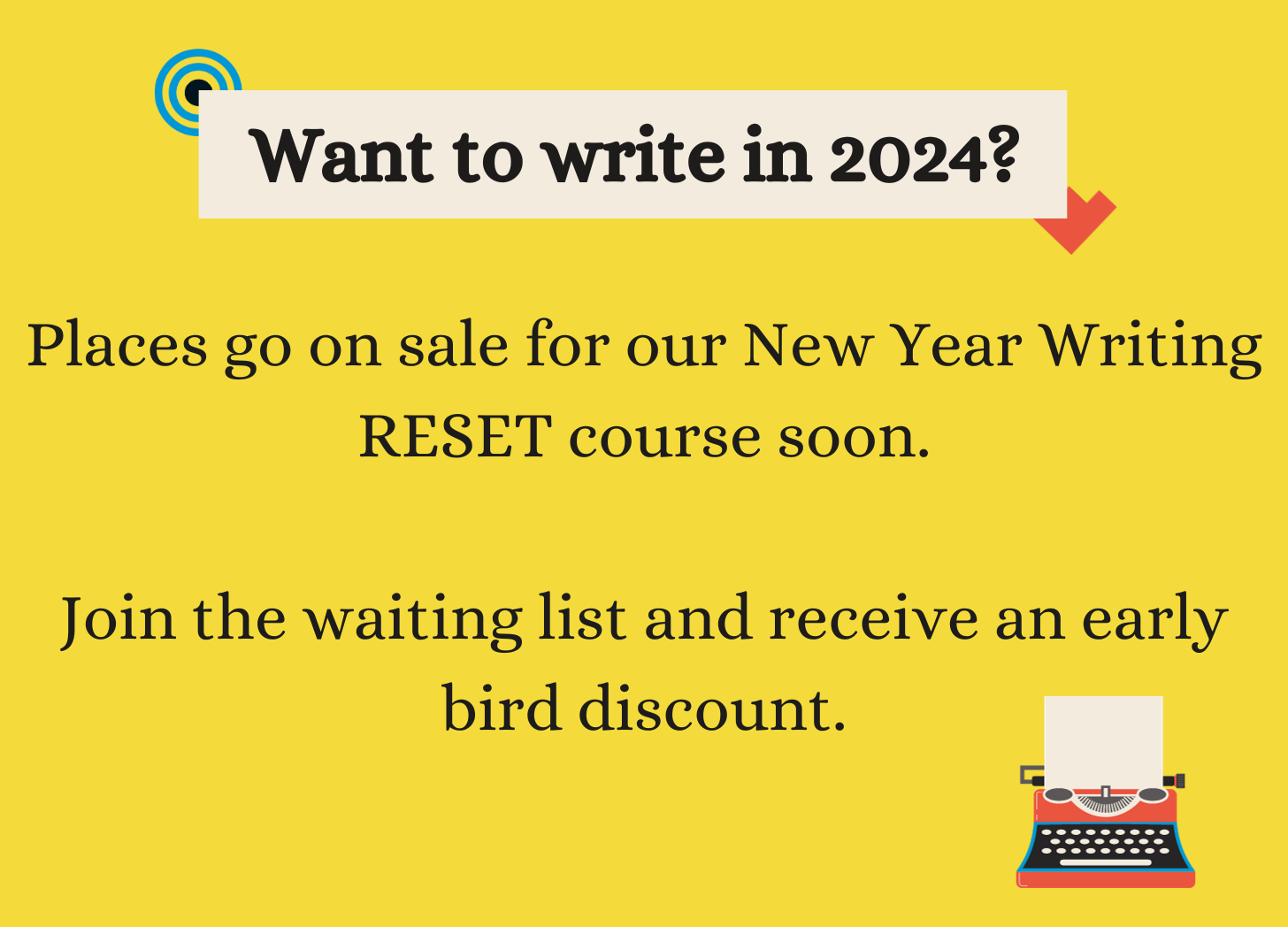Compete or collaborate?
The psycho-social benefits of writing groups have been proven time and again - but exactly what type of community will benefit you? Choosing whether to collaborate or compete.
Hello there writing friend,
The acknowledgements pages of any published book often read like a writerly love-in with authors lavishing gratitude on their buddies.
Writing communities are seen to be a universal good - and they can be.1 But picking a group with a structure and a focus that’s right for you is all important. We reckon this research explains why.
Sink or swim
In 2016 a team of behaviour change researchers decided to examine what social conditions best motivated people to maintain an active lifestyle (desk-bound writers take note).
The researchers told three groups of sedentary office workers that they had to try to improve their fitness over the course of four weeks. But the ways they were going to do this were going to be different.
Group 1 were the collaborators. They were given a group target they had to reach together.
Group 2 were the competitors. They were told to compete against each other for prizes and that their progress would be displayed on a leader board for all to see.
Group 3 were the control. They were given a few public health leaflets to read about the benefits of activity.
Now, you may not be too surprised to learn that the control group never really left their office chairs.
By comparison, the collaborators improved their physical activity levels by 16 per cent over the month – a good result. But it was the competitors who experienced the largest improvements. They increased their activity levels by 30 per cent. So, the case for competing seems clear – doesn’t it?
What the graph above doesn’t show is that the researchers found a lot of variation between the different groups.
While the competitors contained two people who achieved the highest scores (and so skewed the overall figures for the group), it also contained lots of people who hadn’t improved much at all.
The researchers concluded that competitive and collaborative environments have their upsides and a downsides.
While competitive environments encourage individual achievement, they discourage and demoralise those who aren’t ‘winners’.
While collaborative environments tend not to result in break-away stars, they do lift up the average performance of everyone.
What suits you?
So, the moral of this little story is this.
When it come working and writing with others, figuring out whether you will thrive in competitive or collaborative environments is all important.
Competition motivates some people. They feel demotivated in environments that don’t push and challenge them. Others prefer to work with others. They thrive in collaborative, nurturing spaces.
Which would work for you? What’s your experience of writing in either?2
We’ve listed a few of our favourite writing communities, groups and accountability tools below.
Keep writing, Chris & Bec
Bec’s recs for writing support
London Writers’ Salon runs writers’ hour four times a day for online writing in community, they also have a wide range of workshops, advice and interviews. I spoke to them recently and will be sharing some excellent advice from the founders next week.
If I need accountability to write but am not in the mood for community, I swear by Focus Mate. Book a session and somewhere in the world someone will show up - the perfect pre-commitment device.
Mslexia is my must-read writing magazine and they gave me my first ever paid writing commission a decade ago. Working with the team to design their annual Writing Diary & Planner has been a delight. They have a salon for weekly write ins and regular workshops, like this one I’m doing on time management in December - check out Mslexia Salon for women writers.
Alison Jones’s business book proposal challenge was where my first two books took shape (and landed me an agent and publisher). Chris and I have signed up for January for our next one. Also, Alison and I are running an in-person writing day at the stunning Gladstone’s Library on 24 January 2024.
Arvon changed my life and sets thousands of writers on their way to success with their week-long writing courses and retreats in the UK. I’m running a course with them next year at The Hurst - I cannot wait to share details! Check out Arvon at Home for online inspiration.
Speaking to Rennie Saunders of Shut Up & Write for the book was a highlight. Founded in 2007 with meetups in over 60 countries, there’ll be a group in-person on online to help you write in community.
Join the RESET waiting list here
Other people can help you accomplish things you’d struggle to do alone. Writing groups give people confidence, accountability, support and feedback. The research backs it up - when one study looked at the different types of writing support interventions, it found that writing groups perform particularly well due to ‘psychosocial benefits’.
In our book Written we provide examples of these approaches - in the competitive corner is the early days of the Iowa Writers’ Workshop. Its survival of the fittest regime crushed many budding writers and led to the founding of the Macondo Writers’ Workshop, which set to gather writers ‘who are generous, compassionate, and believe their writing can make non-violent social change.’ Check out Chapter 9 People for stories, research and tips.









